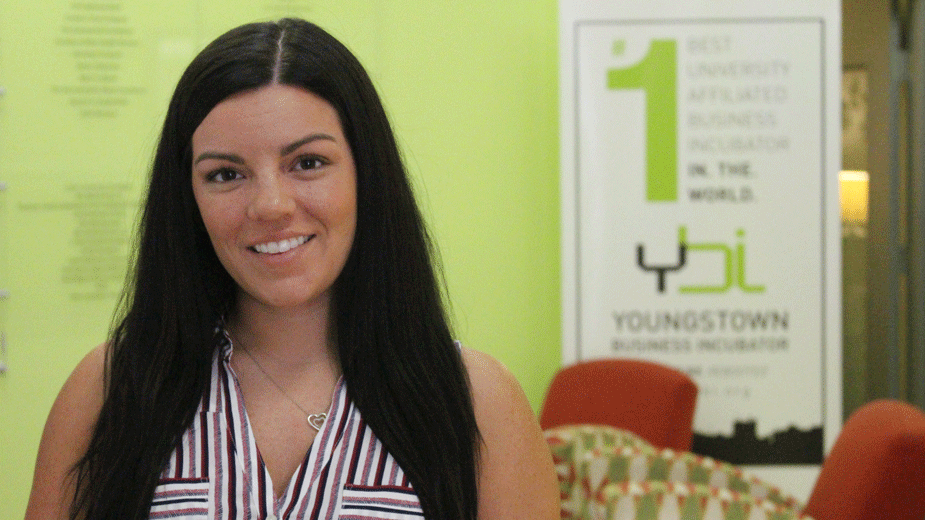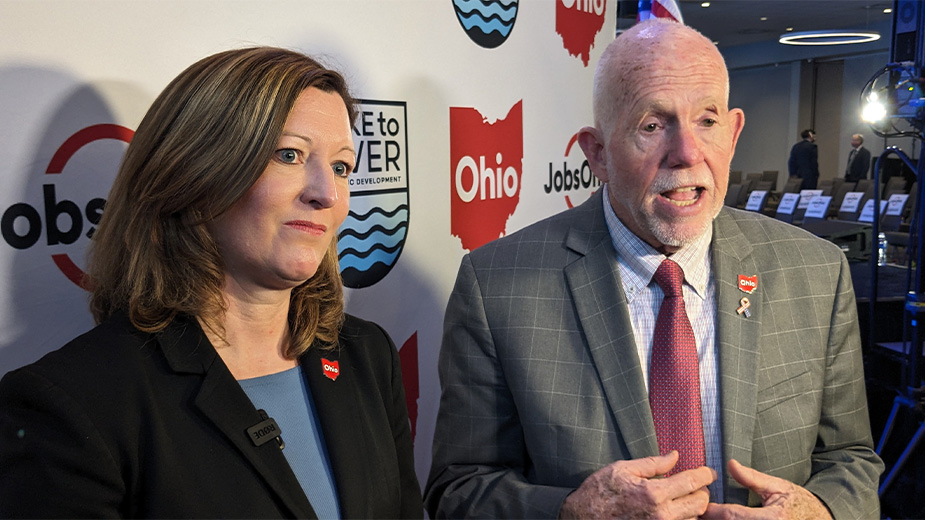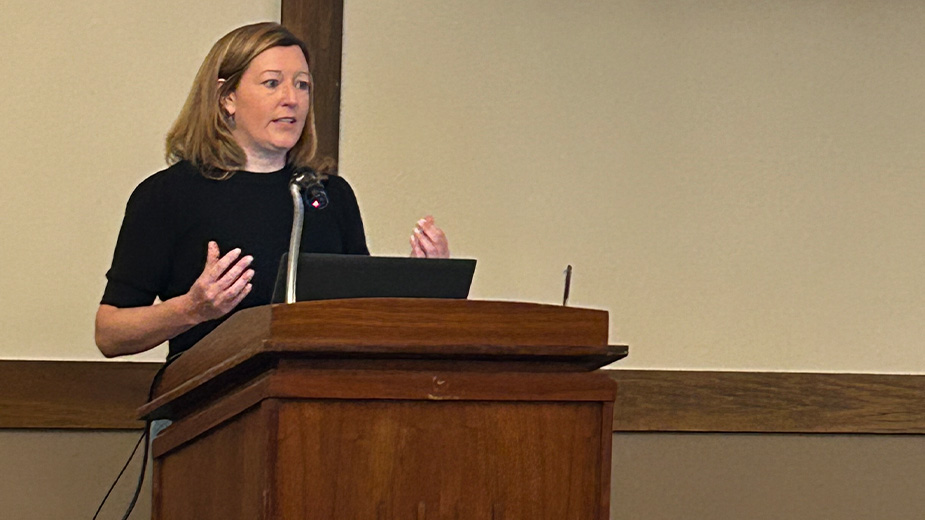‘Millennipreneurs’ Favor Tech Startups
YOUNGSTOWN, Ohio – Millennials look at entrepreneurship differently than the baby boomers, their mentors say, and are going into business at a younger age.
“Students are recognizing opportunities and envisioning a brighter future in entrepreneurship than [with] a more traditional job degree,” says Joe Angelo, director of the Entrepreneurship Center at Youngstown State University.
Indeed, this new generation of entrepreneurs, under the age of 35, has been dubbed “millennipreneurs,” according to BNP Paribas, an international banking group with a presence in 75 countries.
BNP recently surveyed 2,600 entrepreneurs in 18 countries, including the United States. Much of its report compares millennial entrepreneurs to boomers – anyone 50 and older.
The survey finds millennials start their first businesses at age 27 on average while the older generation launched theirs at 35. It also shows millennials are starting twice as many businesses than the boomers did, and that the younger generation expects a 5% higher gross profit margin.
Four mentors to local “millennipreneurs” – Angelo of YSU; Brittany Housel-Mendez, director of program management at the Youngstown Business Incubator; Janet Moy, Youngstown chapter chairwoman of Score; and Anthony Iannucci Jr., executive director of Warren Redevelopment and Planning Corp. – tell how they help guide them.
It’s the “perfect time to start a company when you’re young,” Angelo begins, “because you have a broad social network. Most don’t have families [to support] or mortgages and most are still living on mac-n-cheese and hot dogs.”
YSU offers a minor in entrepreneurship that requires 19 credit hours and a certificate that requires 12. Interest has been growing along with enrollment at the Williamson College of Business Administration, Angelo says.
Requirements to earn the minor exceed the certificate because the minor is intended to provide students with a deeper understanding of entrepreneurship by requiring them to write a business plan. “You have to have a business plan if you go to a bank or start your own business,” Angelo says.
Young entrepreneurs want to fill more technology-based niches in business, Angelo finds. Because of the demand, YSU has introduced a new course this fall on tech entrepreneurship, “which tends to resonate with young entrepreneurs,” he says. The course focuses heavily on software- related businesses and tech products.
Students approach Angelo with an idea that excites them but, he tells them, there’s a huge gap between an idea and an opportunity. He views entrepreneurship as a three-step experiment: “Can you come up with something that is novel, unique and useful? Can you monetize it? And can you scale [it] to meet demands?
“You don’t think about it as success or failure, but as an experiment,” he says. “And being young is a good time to take a little risk and learn an experiment or two.”
Housel-Mendez, who works with many college students, says helping them take their ideas to market is something the YBI struggles with. “They come up with great ideas but for one reason or another, they have to take a full-time job and can’t jump into entrepreneurship right out of the gate,” she says. “They have college debt and a lot of things to consider when coming out of the university.”
The incubator has a good workingt relationship with YSU and other universities in northeastern Ohio, Housel-Mendez says.
“Young entrepreneurs have a different mindset than more seasoned entrepreneurs,” she finds. “A lot of younger people have been around technology so much that it is part of them. It’s easier for them to figure out problems with the technology they have and how they can address those problems, and that’s what we’re seeing turned into businesses.”
To become an entrepreneur at the YBI, one first must apply online. “If we see some raw elements of a good idea or a team, we will work with them to refine that, do some market research and verify that there is a market and help them through that process,” Housel-Mendez says.
The incubator offers the services of an entrepreneur-in-residence, former CEO Jim Cossler and others who have experience in a related field to serve as mentor for young business-owners.
A new social entrepreneurship program, So Good, is ramping up to promote those who want to start a for-profit company with a purpose beyond simply making a profit.
Housel-Mendez believes this program will help young entrepreneurs because it is something “they’re going to get,” she says. “This group of young entrepreneurs doesn’t want to just buy a product. They want to know where the product came from. They want to know if they’re making a difference,” she says.
YBI has partnered with Jet Creative,Youngstown, to provide low-cost marketing packages for businesses to set up website, write social media plan and design logos. Other programs offered are Women in Entrepreneurship, an accelerator program with three levels for women, and free entrepreneur-based classes open to the public.
“A lot of times, young entrepreneurs will hold onto things because they’re afraid someone is going to either steal their idea or are afraid of criticism,” Housel-Mendez says. “But if they come to a place like this, we can help them refine their idea and they won’t spend a year – or even seven years – muddling over this idea that may not have any validity.”
“Entrepreneurs need to be open to feedback and suggestions,” Score’s Moy says. “Sometimes one can have a great idea but no customers for great ideas.”
Score, housed in the Williamson College of Business Administration at YSU, has 30 volunteers from a wide range of backgrounds to mentor anyone looking to start a business.
The process starts with helping the entrepreneur find out what he’s passionate about and how many hours he’s willing to devote to starting a business. The mentor helps the would-be entrepreneur write a business plan, “the roadmap to success,” Moy says.
“Entrepreneurs have passion and a great idea but haven’t considered important factors like how to gauge finances,” she says.
Score offers a new program that has been attracting young entrepreneurs, Bagels to Business. Bagels is a lecture series that invites speakers to each presentation after which the audience can ask questions and network with others who attend.
Young entrepreneurs build their new businesses with “a lot of hard work,” says Iannucci of the Warren Redevelopment and Planning Corp., or WRAP. “It’s good to have people with fresh ideas,” he says. “They understand social media, which is important to businesses these days.”
WRAP offers a pop-up program, where the owner of a startup tests his idea at a temporary space used as a storefront. And the agency’s staff meets regularly with businesses to offer advice and clear initial hurdles.
A problem Iannucci finds is that young entrepreneurs come to WRAP with questions on insurance, accounting, taxes and other related matters a business has to handle. “Most people know their products and services well,” he says. Their footing isn’t as sure on the day-to-day aspects of running a business. So he directs them to the resources they need.
Millennials are filling niches such as creating social environments in downtowns, he notices, far more than the boomers did.
“I see more millennials willing and desiring to do their own thing and take on a mantle of ownership. That’s what we’re seeing in downtown Warren and downtowns everywhere,” Iannucci says. “Millennials understand the social atmosphere that comes from a downtown. They are willing to step up and give it a try.”
Pictured: Brittany Housel-Mendez is director of program management at the Youngstown Business Incubator.
Copyright 2024 The Business Journal, Youngstown, Ohio.



